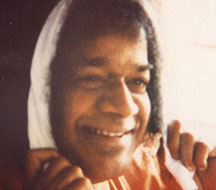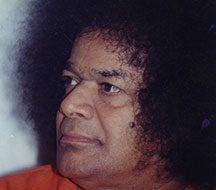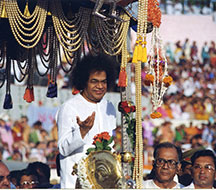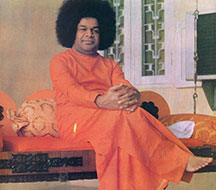
We don't have control over what others think about us: Beautifully explained Chinnakatha
Bangalore, Brindavan (Summer Course )
Description
People have plants in their houses and tend to them by watering them, cleaning and providing suitable conditions to grow and they think that such cleaning work may be considered by others as menial and are afraid of being labelled as servants. Due to this perception people have stopped cleaning their houses. One should not waste one’s life based on the respect and disrespect doled out by others. People should not give in to feelings of shame as the work done by them is for their happiness and to keep their houses clean and intact. One should not care about the thoughtless fame or defame that others give and must only be ready to act on one’s thoughts, either good or bad, not depending on others’. Fame and obscurity are meaningless words. There is a small story. There lived two persons in a village. One of the two always rode a horse when journeying. The other person carried a pillow on all his journeys. One day both of them had to travel at the same time to the same destination. The person who had the habit of carrying a pillow started first and the other person, who rode his horse, followed. They had to pass through a village on the way to their destination. The people of the village took the person walking with a pillow, to be carrying the records and books and thought him to be a peon. Seeing the man riding the horse behind, they took him to be the officer who was following the peon. In the old days there were no cars or buses to go from one place to another; so the collectors, Tahasildars and officers often used horses. On reaching their destination, the person with the pillow sat comfortably in a rest house against the pillow and the person on the horse walked the horse in search of a suitable place to lodge the horse. Seeing the man resting royally on the pillow the villagers thought him to be an officer and the man looking for a stable, to be a peon. This is how people form feelings of respect and disrespect in the world!! The person who was thought of as a peon in one village was considered as officer in another and vice versa!! The respect and disrespect that people gave the two persons was solely based on their perceptions. The persons did not lose or gain respect by the villagers’ perceptions. A king may have a dream of being reduced to a pauper and a beggar may see himself being crowned as king in his dream. But as soon as they wake, the king finds himself as king and the beggar a beggar. Neither the king has become a beggar, or the beggar a king. In their wakeful state both retain the respect due to them. The feelings of respect or disrespect experienced in their dreams are like the passing clouds. Therefore, without taking such feelings to heart, one must be ready to sacrifice anything to serve one’s own, in one’s house for one’s self satisfaction.
Chinna Kathas
-Morals
-

Listen to your conscience and not the world: Story of a donkey
00:03:46One should not follow others blindly. Following others blindly will only lead to ruin. A small story: A grandfather and his grandson were going to the next village to buy some items along with their donkey. The grandfather was old and the grandson a young boy. The grandfather took along his grandson as his help. On the way they met an acquaintance. The acquaintance said, “O what are you doing? You are doing such a foolish thing. Why walk when you have a donkey with you? One of you could ride the donkey to the village.” Then the old man mounted the donkey, thinking the advice to be reasonable. After a while they were accosted by another acquaintance. He said, “Old man, being a grown up person, how can you make the small boy walk? Why don’t you make him ride the donkey?” The words of the acquaintance seemed true to the old man and he got down from the donkey and made the grandson sit on the donkey. Thus they travelled some distance. “Why is one walking and another riding? After all it’s a donkey, it can bear two riders.” said another person. Thinking it to true, both sat on the donkey. The donkey’s back bent under the weight the two sitting on it. Then again somebody came and said, “What hard hearted people you are?! That is a dumb animal and if you put so much weight on it, won’t it die? It is foolish on your part.” So the grandfather and the grandson got down from the donkey. The donkey was tired and did not have the strength to continue further. Yet another person came and on hearing the old man lamenting about carrying the tired donkey, said “I will give you a staff. You tie the donkey legs around the stick and you both carry it.” The grandfather and the grandson continued walking while carrying the donkey on the stick with great difficulty. On reaching a small hamlet, the kids of the hamlet saw the donkey being carried in a weird way and started laughing loudly. The loud laughter scared the donkey and it started to wriggle frantically. They were on a bridge crossing a river. The frantic movements of the donkey made the old man and his grandson fall in the river below. Just as those two people who fell in the river listening to all and sundry, so also is the condition of people who follow others blindly. One must follow one’s conscience, heart and follow one’s master and experience the oneness with the heart. One must not be so innocent as to listen to and believe all and sundry. One must follow one saying and one path. This is what one must practice.
-

If man is right, world would be right: Chinnakatha
00:02:23An Officer was working in his office. In the house, his child was doing mischief. Unable to check his mischief, his mother sent the boy to her husband’s office. His father was then in a bank. The boy was continuing his mischief there also. Looking around, his father located a world map in one corner. He picked it and gave to his son, asking him to cut all countries and re-fix them in the same order! The boy has no clue about the countries in the world map. He turned the other side of the map and found the picture of a human being. He understood the locations of head, hands, legs etc and started cutting part by part, keeping them aside. Once done, he started re-fixing them and ensured that the human form has come alright. Having fixed the human form, he turned to the other side and found, to his utter dismay, that the world map has come right although he does not know about it. Why has it come correct? When he could fix the human form in the correct way, automatically, on the reverse page the world map also appeared in its correct form. What it does it mean? If the human being behaves in the just way, the world will also become right! Therefore, a human being has to first transform into a being with humanity and live as a human being. This is divinity. If the human being behaves like an animal, how can he see the world in its correct perspective? It is impossible. First and foremost, lead your life like a human being and not like an animal. Don’t devalue yourself and become demonic. This is the path to divinity.
-

Can we do salutations to humans? Chinnakatha from Ashoka's life story
00:04:18Many have a doubt whether it is alright to do namaskar to human beings. But who else will one do namaskar to, to the ghosts? Once, Emperor Ashoka went for a walk along with his minister. Midway they met a Buddhist monk. Emperor Ashoka ran forward and prostrated in front of the monk. The minister was pained to see his emperor prostrate before a monk. He thought sadly, “Alas, the valuable head of the emperor touched the feet of a recluse.” Though he was a minister he was narrow minded and had no broad thinking. He waited for suitable opportunity and upon returning to the palace he said, “Maharaja! I was very much troubled.” The king asked, “Why Minister, why were you troubled?” The minister said, “The head of the emperor Ashoka is very valuable. How can such valuable head of the emperor be laid on the feet of the monk?” The emperor did not reply. He just smiled and left. Emperor Ashoka was waiting for a opportune moment. After a few days the King called the minister aside and said, “Bring me three heads.” The minister said, “O King I shall definitely get them.” “One, the head of a goat, second, the head of a tiger and the third, a human head. Bring these three.” said the king. The minister got the head of a goat from some place. He went to the forest, killed a tiger and got its head. He went to the burial ground and got the head of a dead body lying there. He went to the king and said, “O King I have brought the heads as you have asked.” The king said, “Good, go to the market tomorrow and sell them.” The head of the goat was immediately sold out in the market. The head of the tiger was also bought by people to decorate their houses after stuffing the head. But nobody bought the human head. The minister returned to the King and said, “O King nobody bought this human head.” “Ok if nobody is ready to buy the head give it for free of cost in the market.” said the king. Nobody was ready to take the human head even though it was offered free of cost. “O king nobody is taking the human head even though there was no price to be paid.” the minister told the King. “The head has value as long as there is life in the body. The moment the body becomes life less the head too loses its value. Therefore, before the head loses its value, prostrate before the noble and achieve sanctity. Make proper use of the head while there is still life in it.” What is humiliating in prostrating before the elders? The atheists criticize such ideology. Such criticising is very foolish. Paying respects at the feet of the noble souls gives value and respect to the human body.
